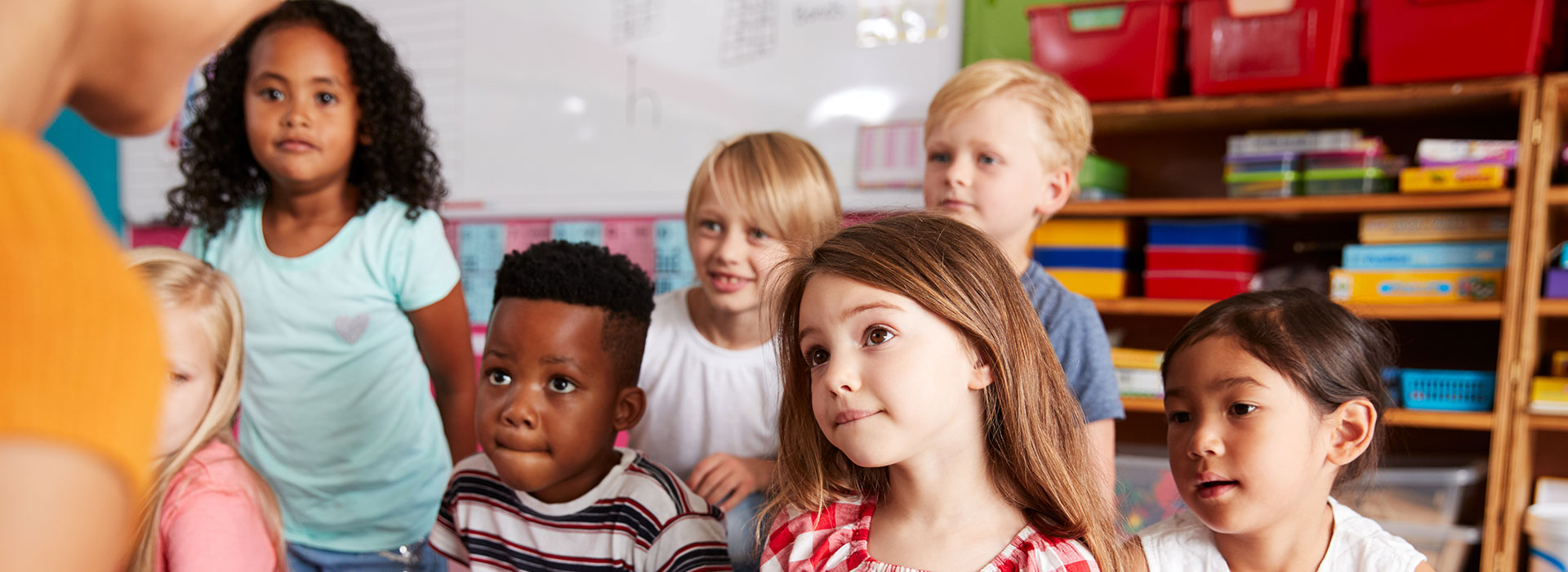As public educators, we don’t need our Nation’s Report Card to tell us about the Pandemic’s devastating impact on teaching and learning over the past two years. Two years of pandemic-disrupted learning erased two decades of U.S. gains in math and reading scores for the nation’s 9-year-old students, according to national testing data released this month. As schools switched to virtual and hybrid learning from early 2020 to winter 2022, the report found average long-term math scores fell for the first time and reading scores suffered their biggest drop since 1990.

Opportunity Gaps Are Real
The pandemic widened pre-existing opportunity gaps, impacting historically disadvantaged students the most. The 2022 NAEP data also makes clear that students of color and students from low-income backgrounds, many of whom already were not given the resources they needed, were disproportionately impacted by learning disruptions caused by COVID-19. In math, students in majority Black schools ended the year with six months of unfinished learning, students in low-income schools with seven. High schoolers have become more likely to drop out of school, and high school seniors, especially those from low-income families are less likely to go on to postsecondary education. And the crisis had an impact on not just academics but also the broader health and well-being of students, with more than 35 percent of parents very or extremely concerned about their children’s mental health.

Accelerate Don’t Remediate
Given the results it may be tempting for educators to turn their intervention efforts to remediation, where students learn concepts from previous grades or curriculum. Remediation and retention (having students repeat a grade) are not effective. Instead, learning acceleration, where a student moves forward with grade-level content and learns key missing skills and concepts so they can access grade-level learning, is more effective in combating learning loss.
Collaboration is More Important Than Ever
- We can’t do this alone. We must partner together to make the impact our students and families deserve.
- Build strong connections with families and students. Understand and honor their lives, backgrounds, and identities.
- Get to know your learners. See and value the background, views, and needs of all students. This includes experiences related to race, gender, culture, language, and/or ability.
- Nurture students’ identities; cultivate a culture of relational trust and belonging.
- Create emotional safe spaces that foster relational trust among students and stakeholders.
- In a conflict, use a restorative mindset to reconcile both sides. Repair the harm so healing can begin.
- Ensure high expectations, resist “drill and kill” to ensure all levels of rigor (surface-deep-transfer).
- Identify and stop practices that boost historically advantaged groups at the expense of marginalized students (lecturing, labeling, tracking, traditional grading-assessment, punitive disciplinary practices, etc.).
- Use evidence-based teaching methods consistently and with efficacy that are proven to accelerate learning (ie: frequent-consistent classroom discussions, deliberate-spaced practice, summarization, note-taking, reciprocal teaching, etc.).
- Adopt strategies that emphasize metacognitive and self-regulated learning: reflection, self-peer assessment, self-verbalization and self-questioning, metacognitive strategies, etc.
- Advance learner agency by giving our learners voice, choice, and decision-making power so they see themselves as their own teacher while making positive contributions to others along the way.
We. Me. Community.
Cultivating quality partnerships with families and communities is critical. These connections can be a source of knowledge; they should help shape school priorities. Keep in mind that our students are our future leaders; we must create conditions to ensure self-empowerment! Please remember that our teachers are our nation’s superheroes; they need encouragement, support, time for collaborative learning and love.
We Belong to Each Other
Mother Teresa
Partner with the Core Collaborative
Over the 2022-2023 school year our network will be highlighting: 1) core evidence, based strategies that have the potential to double the speed of learning for all learners, 2) strategies and tips to support our stakeholders’ social and emotional well-being. Stay
tuned and stay connected. Here is a preview of what is to come:
- Core Collaborative Leadership Cadre
- Activate an inquiry mindset as we unpack the seven core concepts of our “Culturally Responsive-Sustaining Formative Assessment” Framework monthly from our forthcoming book, Amplify Learner Voice through Culturally Responsive and Sustaining Assessment.
- The Project Habit: Making Rigorous PBL Doable
- The Project Habit is all about making small shifts in practice that promote innovation, ignite efficacy, and enhance student agency for all students in their learning.
- Amplify Learner Voice through Culturally Responsive Assessment
- Our forthcoming book examines existing formative assessment practices through a cultural lens. Through his examination, we have identified opportunities for students to build on their cultural strengths as they strive to achieve their own personal learning goals and develop their own agency through self-peer assessment, reflection, questioning, feedback revision and reciprocal teaching.
- Monthly Newsletters
- Stay up to date with the latest and greatest from The Core Collaborative. Our Newsletter is packed with free resources and content FOR YOU!
- MindFueled 2023
- Let’s get ReConnectEd at MindFuelEd 2023 and explore the power within us to give learners the level of autonomy and control that they need to experience and influence their educational journey. This conference is a two-for-one opportunity. Spend time with your family in beautiful Palm Springs (world class golf, swimming, hiking, day-spas, etc) AND expand your learning network at our experiential learning event.


